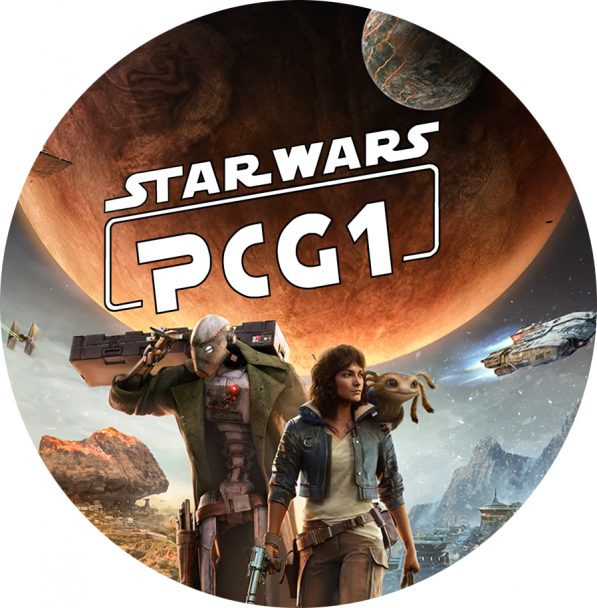The games industry has always been a curious melting pot of ideas and talent; the partnership between Japanese publisher Bandai Namco, French developer DigixArt, and Aardman Animations — the studio behind British cultural icons Wallace and Gromit — is a great example of that.
11-11: Memories Retold, a narrative game which explores both sides of the First World War, was born from the collective efforts of these three companies, each of which brings something very different to the table.
Not only did the partnership draw attention when the game was first announced, but so did the striking and unique artstyle for which Aardman Studios is responsible. Inspired by the works of Monet, Turner, and Peterhof, art director Bram Ttwheam cemented the game as one to watch from the very beginning.
The intersection of visual art and storytelling has always been where Aardman exists creatively, and though the studio has experimented with games before, this is its first experience with a larger project. Speaking with GamesIndustry.biz at Gamescom this year Dan Efergan, interactive group director at Aardman Animations, discussed the shift.


Dan Efergan
“[We have] been making small scale games for about ten years, but wanted to explore the medium more,” he says. “We wanted to continue telling stories and building worlds, but bring that to different platforms… That’s my personal passion, that really murky bit between interactivity and storytelling.”
Aardman isn’t the only ones in this relationship exploring new waters; for Bandai Namco, a sombre, artful game about the First World War couldn’t be further from the high-octane anime action games for which the publisher is known.
But as producer Lionel Lovisa explains, Bandai is aware of its reputation as a publisher and is looking to make headway in the European market by diversifying its portfolio. Described by Lovisa as one of the most original projects Bandai considered, 11-11: Memories Retold represented “completely something we don’t usually have in the catalogue as a publisher”.
“We wanted to expand in Europe with something we don’t have,” he says. “As a company the image that we try to have is something that is not only violence… We know for example that a shooter will sell, but it’s more trying to find a project that has meaning… or piece of art that will go beyond a movie.”
According to Lovisa, this movement towards a different style of game for Bandai began around four years ago, and the publisher has been honing its focus ever since with games like Little Nightmares from Tarsier Studios, Twin Mirror from Dontnod, and Supermassive Games’ recently announced Dark Pictures Anthology.
“That’s my personal passion, that really murky bit between interactivity and storytelling”
Dan Efergan, Aardman Animations
“We kind of try to be everywhere, but also respecting the fact that we don’t want to be known as a money magnet, where we jump on something that will sell because it’s [popular],” he says. “We try to be more respectful and bring something with the video game.”
It’s a point which Efergan also highlights, adding: “You can see that desire to create things with a purpose was quite unified all the way through, which is really nice to have everyone believing in it.”
Adding to the melting pot of 11-11: Memories Retold is the voice acting talents of Elijah Wood and Sebastian Koch. Of course, big name actors come with the requisite price tags which can potentially leave the development side of operations suffering as a result. While attaching a household name to a project is the oldest trick in the Hollywood playbook when it comes to drumming up hype and exposure, both Efergan and Lovisa say it’s more than just a PR move.
Wood is known as a gamer, and his production company SpectreVision is currently working with Ubisoft on psychological horror game Transference. For Koch, Memories Retold is his first time work on a game, but he was drawn to the project for its story and concept.


Art director Bram Ttwheam says he was excited about ‘plundering art history’ when creating the visual style, and even toyed with exploring futurism and cubism
In particular, Efergan explains, Koch was intrigued with the narrative “because he’s played the German bad guy in films, so it was good to have something that is about humanising people in this kind of conflict”.
While Efergan admits that big-names names will hopefully draw some attention, he says that the word of mouth will be what decides the fate of 11-11: Memories Retold.
“People will either hopefully connect with the story and the experience and tell people about it…. or they won’t,” he says. “So it was all about how do we get people to connect? This game is about constructing emotion… That need, that desire have a wide spectrum of experience and emotions needed people to be able to deliver… and I think that’s why when the opportunity arose.
“Because we were working with Bandai Namco, we were able to actually bring actors on board. I think it was a no-brainer…. there are so many lines that need such subtly to make you think two things simultaneously so it was like: ‘how the hell do we do that?’ You bring in people that are really bloody good.”
People that are “really bloody good” can be harder to come by in the games industry though, suggests Lovisa.
“We wanted to expand in Europe with something we don’t have… We know for example that a shooter will sell, but it’s more trying to find project that has meaning”
Lionel Lovisa, Bandai Namco
“When you do voice over in video games, for many voice over actors it’s a side project because they are doing a series or something else… so many of the actors that you have usually don’t care,” he says. “So they come and don’t know anything about the role, the script, the game, whatever…. Of course they are actors so it’s kind of nice sounding, but the amount of research and personilisation of the script is very, very low.”
The level of commitment and professionalism of voice talent takes priority for the development teams because, as Efergan notes, “this game will live or die on these two characters”.
Ultimately, 11-11: Memories Retold is a story about peace rather than war, which aims to tell a story without painting sides as either “good” or “bad”.
“There is no better place to talk about peace than in the middle of a massive conflict,” says Efergan. “This has always been the purpose. The first world war is an interesting, fertile space in which to tell a story, but it’s a story of two people… Most of the time it’s been [a question of] how can we be honest and, although its a fictional story, it’s about how can we kind of tell something that we can feel like it has integrity.”
That’s no small feat from a narrative and storytelling perspective, especially in a video game where player agency can easily override a designer or writer’s intent, but it’s a prospect which Efergan relishes.
“The biggest challenge for every interactive storyteller is that you’re constantly balancing your desire to take control verses agency and allowing them the freedom to find it,” he says. “But for me, rather than being a challenge, that is it.
“That is the exciting, murky, messy thing that we’ve got to try and work out, is how can I create something that you can explore and feel space within, but also where I’ve got enough control so that these people can go on an arc, a journey that you feel something on, and that’s the fun bit.”

